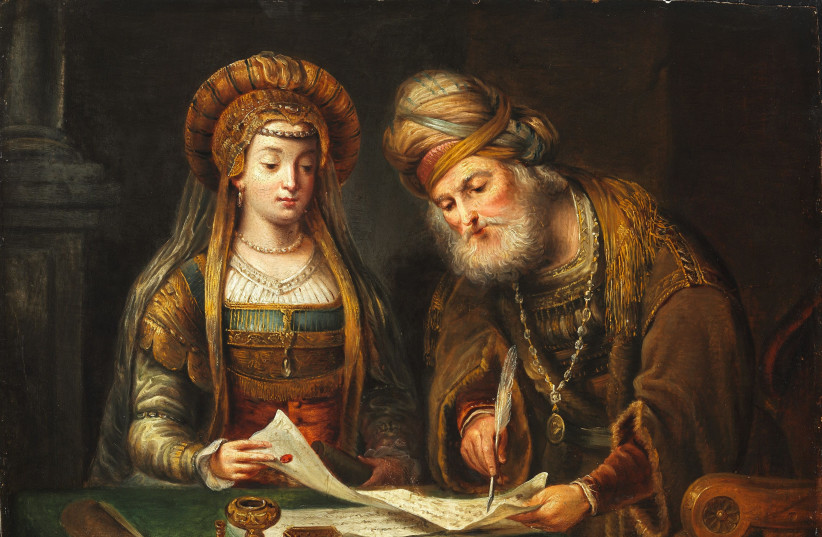What do you think of when you think about Jewish redemption?
Whatever it is, I’m willing to bet the first thing that comes to mind probably isn’t sex, but strange as it may sound, that’s exactly how all Jewish redemption holidays start!
They wanted to kill us. A woman said, “No way!” and with the innate understanding of the physical and spiritual power of sexuality, she turned the story around.
We see this first in the Passover redemption story. The Talmud states that “in the merit of righteous women, Israel was redeemed.” When the men had given up hope, the women understood, through the cyclical nature of their bodies, that in times of death and despair, like menstruation, when it seems that all is ending, in the inner realm, something new is beginning. New follicles are developing, and the potential for new life is awakening.
And with that embodied knowledge, they went out to the fields and seduced their husbands into having sexual relations. By preserving the intimate, emotional, and sexual relationships with their partners, the women ensured the physical and spiritual protection and growth of the nation.

When Purim comes around, Queen Esther is the heroine who engineered the redemption by being chosen as queen after a sexual encounter with the king. As we know, the Purim story is as much about the hidden as the revealed, and even though it isn’t stated explicitly that their sexual relationship was the catalyst for the king’s submission to the queen, from the context of the megillah, it’s clear that King Ahasuerus didn’t offer Queen Esther “up to half my kingdom” just because she made the best Persian rice!
When Queen Esther decided to accept her fate and step into her power, she regained her sexual independence. Instead of merely being used as a pawn and violated sexually, she took autonomy over it and utilized its potential as a tool for redemption. By doing so, she forfeited her personal freedom for the sake of the Jewish people.
Rounding out the sexual redemption theme, we have the Hanukkah story. While it’s left out of most traditional renditions, we get a glimpse behind the scenes in the book Midrash Ma’aseh Hanukkah.
The Jews suffered under Greek rule for years. During this oppressive period, every Jewish bride spent her wedding night being raped by the local Greek ruler. He violated the most intimate and sacred space – the sanctity of the Jewish home.
This occurred with every Jewish bride until the daughter of Matityahu HaKohen stood up during her wedding feast and tore open her wedding gown in front of all the great leaders of the generation. While revealing her nakedness, she cried out and demanded THAT the men in her family stand up and revolt.
When they shamed her for being immodest, she replied, “How dare you worry about my honor when I stand naked in front of righteous men but look the other way when I am to be taken and raped as an act of humiliation and conquest by a wicked ruler?!” Inspired by her act, her brothers banded together and started the Hanukkah revolution, whose victory we celebrate to this day.
Sexual redemption is an integral part of Jewish history
These aren’t just fascinating feminist historical stories. They hold within them a timeless message for us as Jewish people, a message that is more relevant than ever today.
Sexuality isn’t merely a physical act. It can be so much more! It can be an act of resistance, a space for connection, a portal to the spiritual and a powerful life force that holds within it the essence of our survival as a nation.
The writer is a sexuality educator who works with adults, parents, and teens in the Jewish world.
